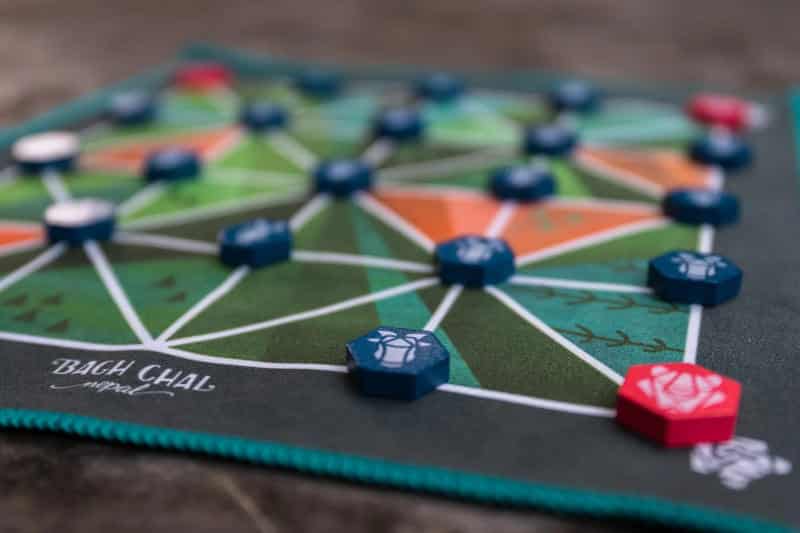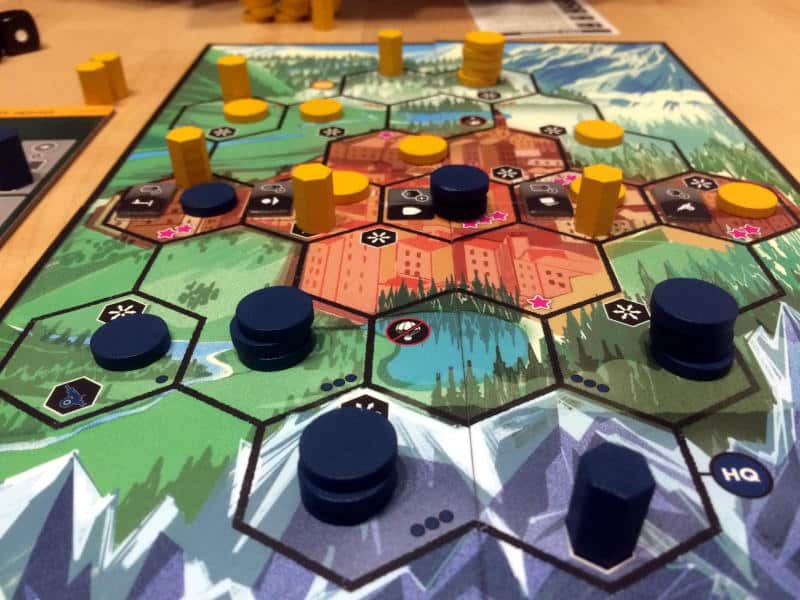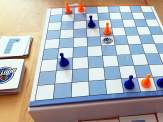Historical simulation games, conflict simulation games or war games – call them what you will. There is certainly a huge following of this genre and there is an endless list of these games already on the market, with many more coming out each year. Many people are put off by the idea of replaying a real conflict from history, but of course, these types of games don’t necessarily have to be about war, nor do they have to be set in history. In this article, I want to look at this genre of game and try and work out what it is that seems to attract me to it.
Listen to the Audio Version
Intro Music: Bomber (Sting) by Riot (https://www.
Music (CC BY 4.0): World Of War (instrumental) by Sascha Ende
It will depend on who you speak to, but in my view, the genre of what is often simply called “war games” includes abstract games like chess, classic hobby games such as Risk, traditional war games including Squad Leader, anything from the COIN genre of games, political simulations like Twilight Struggle, Die Macher or the amazing Votes for Women, all the way to games set in a fantasy world, such as Root. I know, most purists will probably be outraged that I include such a wide range of games. However, I do want to include them all as part of my article.
Two-Player Historical Conflict War Game Simulations
I think many of us will have played an abstract two-player game, such as chess. As abstract games, they don’t actually simulate a war, let alone a historic one. However, they are conflict simulation games, in that they are not only competitive, but they actively pit two players against each other. Your goal as a player is to defeat the opponent. It’s very direct and almost personal. Beating your opponent tends to be quite satisfying, because it is you against another person. Most abstract games allow you to plan ahead, sometimes many turns in advance, sometimes only one. So when you win, it’s down to your planning and not because someone else helped you. When you lose, it’s your own fault. It’s very black and white.
When you put some clothes onto a two-player game to move away from being purely abstract to something more realistic, things change. In a game with a setting that somehow appeals to you, the stakes are often raised. You’re more invested. There are more emotions involved. For example, many of us will feel weird winning on the side of whatever is considered the “baddy”.
It doesn’t have to be a historical battle either. So while many of us won’t enjoy playing as the Germans in World War II, the same can be true for a science-fiction setting. While everyone wants to be part of Star Wars‘ Rebellion, not many relish being on the side of the Empire. Mind you, it can be fun being evil in a game, but you get the idea. There is an emotional attachment.

Multi-Player Games
When you introduce more players and allow three or more players in a conflict simulation game, the dynamic changes again. These games can be one versus many or team versus team. There is potential for temporary alliances that break up and reform with different partners. In some games, it can be vitally important that you choose the right ally at the right time. The conflict itself plays a minor part, because unless you work together, you have no hope of winning. Yet, you also want to ensure you’re the last player standing.
It isn’t even necessarily about simulating a war or conflict, real or fictional. There are many political so-called war games and that’s where it becomes about taste. Many people shy away from “playing war”, even if it is some sort of fictional war fought in a galaxy far, far away. These people still have a lot of choice. I already mentioned Twilight Struggle, which might still be a bit too close to home. However, games like Die Macher or Hegemony could be more to their taste. You’re still fighting over political power, but nobody dies and there is no brutality.
So there is definitely a wide choice to cater for a wide range of preferences. Whether you like a straight-up two-player war game, prefer a multi-player game about politics in Germany or want to take an all-powerful ring to a volcano and banish all evil from Middle Earth, there should be a game for you. I must say, that’s really good to see. Our hobby has certainly come a long way.
Personal Conflict
The question remains though. I still need to understand what these types of games offer to me and make them so appealing. So let’s start at the beginning…
I know that chess has a special place in my heart, because playing against my elder brother when we were younger, I always lost. So I practised and read some chess theory books. Eventually, the match to end all matches was arranged and with some flair and lots of nerves, I finally managed to beat my brother, which was a wonderful moment that I will never forget. My brother subsequently retired from the game, but I have been playing on and off throughout my life.
So I definitely like chess, but it wasn’t until I rediscovered the board game hobby that I eventually came across other two-player conflict simulation games. These were less abstract, but just as exciting. I think the key for me is that these games require a mix of strategy and tactics. I love it when both sides have the same starting position and the same abilities. That’s when it’s really down to how well you play and not due to some fluke of choosing the faction with the overpowered abilities. When you pit your wits against another player’s, it’s really exciting.
Mind you, I never care too much about the setting of a game. Whether it’s Britain in Saxon times, Germany against the Allies in World War II, like beautifully distilled in General Orders: World War II or a conflict in some far-flung future, when it’s a two-player game it’s all about the mechanisms that allow you to formulate your strategy and adapt it to the situation by choosing the appropriate tactics.

Attractive History
Saying that, there are exceptions. I often find that games about Germany’s modern past attract me as well, especially games set any time after I was born. I’ve not yet played Die Macher, but I can’t wait to try it. I enjoy Twilight Struggle and the text on the game’s cards that remind you of what went on. I guess it’s about the actual history for me in those types of games. I was never any good at history in school, so playing a game about events that happened during my lifetime or just before is very interesting. You sort of fill in the gaps in your knowledge as you play. You are reminded of what you were once taught and it all starts to make a lot more sense when seen in context.
I think that’s actually a very important point. Many historical conflict simulations or other war games are able to bring history to life. After playing Votes for Women, I not only learned a bit more about the United States’ geography, but was also able to link what happened in the States to events that took place in the United Kingdom. I appreciate of course that games are rarely a good tool to teach history in detail, but when a game makes you want to learn more about events from the past, it can only be a good thing.
That is definitely another facet of these types of games that attracts me to them. When I can see that a game can teach me at least some small snippets of history and make me want to find out more, while also keeping me enthralled and engaged for a number of hours, I am always intrigued.
How About You?
Now it’s your turn to share your thoughts. Do you like war games or do you shy away from them? Do you even find them distasteful? Are there other historical simulation games that appeal to you? What else do you think of these types of games? Maybe you think recent history should always be left alone. Maybe you don’t mind when a war game is set in some fictional future. As always, please share your thoughts in the comments below. Let’s get a conversation started.
This blog is free for everyone, but if you'd like to support it, here are some options.
Useful Links
- Risk: https://boardgamegeek.
com/ boardgame/ 181/ risk - Squad Leader: https://boardgamegeek.
com/ boardgame/ 1035/ squad-leader - Twilight Struggle: https://boardgamegeek.
com/ boardgame/ 12333/ twilight-struggle - Die Macher: https://boardgamegeek.
com/ boardgame/ 1/ die-macher - Votes for Women review: https://tabletopgamesblog.
com/ 2024/ 02/ 10/ votes-for-women-digital-eyes/ - Root review: https://tabletopgamesblog.
com/ 2022/ 02/ 12/ root-a-game-of-woodland-might-and-right-saturday-review/ - Hegemony: https://boardgamegeek.
com/ boardgame/ 321608/ hegemony-lead-your-class-victory - General Orders: World War II review: https://tabletopgamesblog.
com/ 2024/ 02/ 17/ general-orders-world-war-ii-saturday-review/
Audio Version
Intro Music: Bomber (Sting) by Riot (https://www.
Music (CC BY 4.0): World Of War (instrumental) by Sascha Ende
Playlist
These are the songs I listened to while I was writing this topic discussion article:






